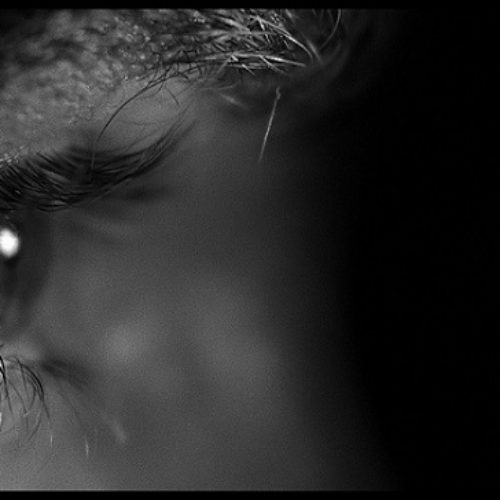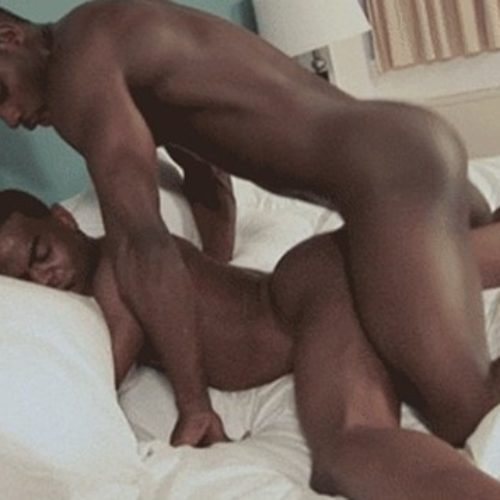ABUSE, THE NIGERIAN CHILD, AND OUR BEATING CULTURE
Say, you’re hanging out with a group of Nigerian acquaintances. It’s an auspicious evening. You talk about your life experiences in a Nigerian home, growing up. The ups and downs. The perks and disadvantages. You begin a particular tale about how you were beaten by your mother for playing with the neighbor’s children.
You barely get past three sentences before your tale is summarily punctuated by fits of laughter—the kind of laughter that warrants rolling on the floor, with legs swinging in hysterical undulations—not because your tale is particularly funny, not because your delivery betrays a hidden comedic genius. No. You’re laughed at because “your own beating na small naw”, “you never chi chomchin”, “you no even suffer reach wetin I suffer na”, “Na only beat them beat you?” “Lol, ajebutter.”
You’re then treated to a compendium of harrowing tales of torture and incessant beatings in the hands of Nigerian parents. Amidst it all, one thing becomes apparent to a keen observer:
Many Nigerians simply do not know what abuse is.
We hear it every time, even uttered by learned Nigerians. We call it “hard resets.” A great many Nigerians subscribe to the idea of corporal punishment. A lot of us believe that beatings help teach children morality—that it’s okay to spank children into correction.
OPERANT CONDITIONING
What many Nigerians who were beaten as children and subscribe to corporal punishment as adults fail to admit, however, is that most of the beatings they received were for things that a critical scrutiny of which would reveal were not wrong, in any sense of the word. Like playing soccer for instance. I was beaten periodically by my mom for playing in the neighborhood field. One particular episode culminated in having fresh pepper smeared over my eyes (true story). A critical examination of all the beatings we received would reveal that most were pointless, needless and hopelessly callous.
Worst still is our failure to admit that corporal punishment did not make us better. It only made us better at identifying actions/behaviors that guaranteed a session of beating and better at avoiding them. It said nothing of the morality of the actions themselves. A child who is constantly beaten for a behavior comes to avoid that behavior, not because he/she understands why such a behavior is wrong, but do so to avoid further pain.
Reminiscent of the Five Monkeys Experiment, beating a child constantly triggers a form of operant behavioral conditioning. But operant conditioning can be used to weed any behavior. (Any behavior not genetically triggered at least.) A child beaten for reading would eventually stop reading. (I made a Facebook post last year about the periodic beatings I received from my dad for sketching because he thought the cartoon characters I drew resembled “demons”. Eventually, I stopped drawing. A decision I regret today.) This is what advocates of corporal punishment fail to acknowledge.
THE SNOW BALL EFFECT
Negro slaves in plantations across the southern States of the US who were made house slaves and thus were closer to their slave masters—and to whom little rein over the field slaves were bequeathed to by their masters—tended to treat the field slaves the same way their masters treated them, never minding the fact that they all were slaves.
In what I like to term as the Federal Government College (FGC) Effect—and those who attended FGCs across Nigeria can attest to this—we’d see fresh students severely abused by their seniors. Younger students were beaten, stolen from, punished for every perceived slight, and the same young students, through the years, eventually became seniors who, for no other reason than the fact that they were punished when they were younger, would invent terrible forms of punishment and exert them on younger students in an ever distending—and rather grotesque cycle. Bosses at work who were constantly shouted at, insulted and abused in their early years tend to shout at, insult and abuse interns and fresh recruits. The culture of violence and abuse reinforces itself. An abused child usually becomes an abusive parent. And in all of this, never once acknowledging that what they passed through, or what they were meting out, was abuse.
STATIC PARENTING
“Mummy, why are leaves green?”
“What color did you expect them to be, Junior? Don’t ask stupid questions!”
Parenting is a difficult job. It should be. It’s not easy raising another human being. Parenting involves active participation in every stage of the young human’s life. This usually involves active control of the kind of information consumed by the child, their type of association, open-ended discussions on right on wrong. Sadly, Nigerian parents seem to have found a shortcut to parenting: on the bark of that dried cane and on the sole of that multipurpose pair of slippers. Parents who are authoritarian and who constantly beat their children in the name of correction usually do not notice the disconnect between them and their children. They fail to notice the inability of their children to approach them when in need. They take no cognizance of the difficulty their children have in communicating their problems with them. So we raise children who see violence as a cop-out for responsibility. We become a society so inured by violence, we do not see how it affects our relationship with others.
ARE YOU OKAY?
“Hey. But I was beaten by my parents, and I turned out okay.”
Did you?
Fifty years of our unending beating culture has not stamped out our homophobia. It has not positively affected our view of women and their role in society. Fifty years and we’re still as hopelessly tribalistic as we ever were. If you turned out okay, you did so in spite of all the beatings you got. Not because of them.
And if you were beaten, growing up, and you’re now an adult who thinks beating a child is very okay, or homosexuals should have no rights, or women are not equal to men, then you did not turn out okay.
Written by Godswill Vesta
About author
You might also like
“I Will Shoot You Here And Nothing Will Happen.” Jude Idada’s Story Of The Nigerian Police Brutality
They stopped me. These men, dressed in black T-shirts, some with jackets on, some wearing face caps. And all of them wearing different shades of jeans, boots, and running shoes.
Sex And A Straight Man’s Point Of View
This piece was originally published on adebayoadegbite.wordpress.com, and titled ‘On Sex And Voyeurism’. I read it from a twitter feed, loved it and simply had to share. * This piece
Forced To Fuck
FOREWORD: This is a very fantastic, university story that happened to my good friend, Lanre Swagg; I won’t mention the university where it happened; he asked me not to, I suppose,










5 Comments
Dimkpa
January 27, 08:05This right here hit home. I regret to say I was beaten a lot. I still remember some of them vividly, the feeling of doom while anticipating the lashes, the terror at the size of the weapon, the pain and the welts on my body afterwards. It was too much to handle. Though now it is all past and I have made a life for myself, the lacerations on my mind still remain. Outwardly I may have turned out okay but inside I am still a mess and even though I am trying to sort it out, it never really goes away and is a baggage I would rather not have to deal with. A lot of my present social inadequacies can be traced back to those days. The fear of people in authority, lack of assertiveness and being acutely sensitive to criticism.
People think that having the ability to make a baby equips one with the skills to raise one. This is obviously not true. There are many colleges of education where people are taught how to teach children. These teachers only spend a fraction of time with the kids. The parents who are with them for most of their growing years however don’t get any training and there lies the problem.
Some people will come out and shout ‘Spare the rod and spoil the child’, a statement I believe is from the Bible. The same Bible also says that sticks are not meant for the backs of children but it doesn’t get as much publicity.
Thanks for writing this, it is good to know that people are realising the error of corporal punishment and the dangers it poses. For the would be parents here, just know that soft words can accomplish more than hard force.
Bain
January 27, 08:46My mother used to say; “When a child does something wrong hitting a child won’t change anything,but correcting the child with love would,if the child doesnt take corrections,its not the child’s fault,they are to young to understand, you just have to change you correction method.”…
Funny thing is Nigerians don’t understand that hitting someone is physical abuse,it has become a norm.
Francis
January 27, 20:19My mum was talented at unnecessary beating and this was feared for that. Funny enough she knew the beatings were uncalled for as she made efforts to hide them from popsy would get mad at her if he ever found out.
It’s one of the reasons why I don’t want to have kids……… I’ll most definitely treat them the way i was raised and probably kill dem in the process and that is no way to raise a kid.
My brothers were able to stand up to her as time went by sha but not me as mummy pikin that I is. I made sure to pay attention to the rules and stick religiously to them to avoid pissing her off.
P.S: the last part of this piece left me confused as to what the beatings have to do with homophobia and the feminist movement
MagDiva
January 28, 08:38I have to admit with my first, I was 80% the static parent and this little human was a project to me and I sadly dealt with him the way did projects. By the time I got to my second, I had grown – mentally and emotionally and was a lot more prepared and sadly I can see the difference.
I was beaten by my mum, heck! At one point I was convinced that I was adopted and so was glad when I left home at 17. Our relationship was strained (still is) and I honestly believe then that the beatings shaped me and did me good. However, having kids, I’ve found that that’s the wrong way to parent.
We need to talk to our kids, engage them, correct them, whilst also making them realise that for every negative action there are consequences. It’s all about finding the right balance. Everyday I’m learning from these two and trying to be a better parent than my parents were.
Mani
December 08, 21:18Thank you for writing this. I am an adult now raised by two Nigerian parents who of course beat me, among other harsh Nigerian ways of raising children and I now suffer from C-PTSD. I sink a lot of time and TREMENDOUS effort into very very expensive therapy to get by. I thought beating didn’t affect me until something triggered me at age 39 and the effects of all of the terror I was raised under started spilling out. There is a price to be paid for everything. I would have never thought that these beatings affected me, until my body one day couldn’t hold it in anymore. I’ve since learned so much about childhood trauma that it pains me greatly to see how Nigerians ‘discipline’ their children. None of this is ok. There is a very VERY high price to pay for it. Believe me.